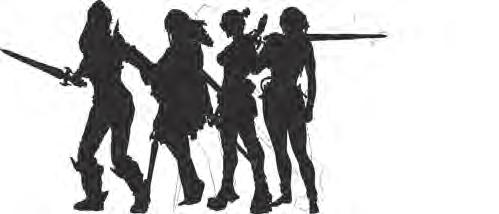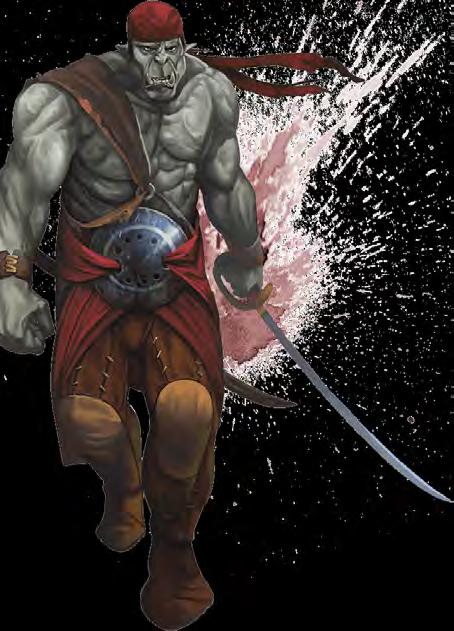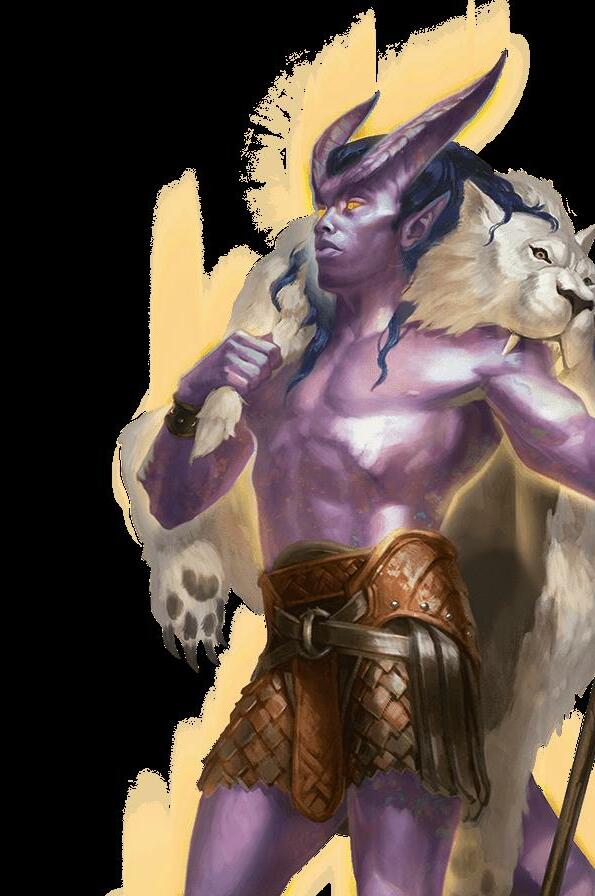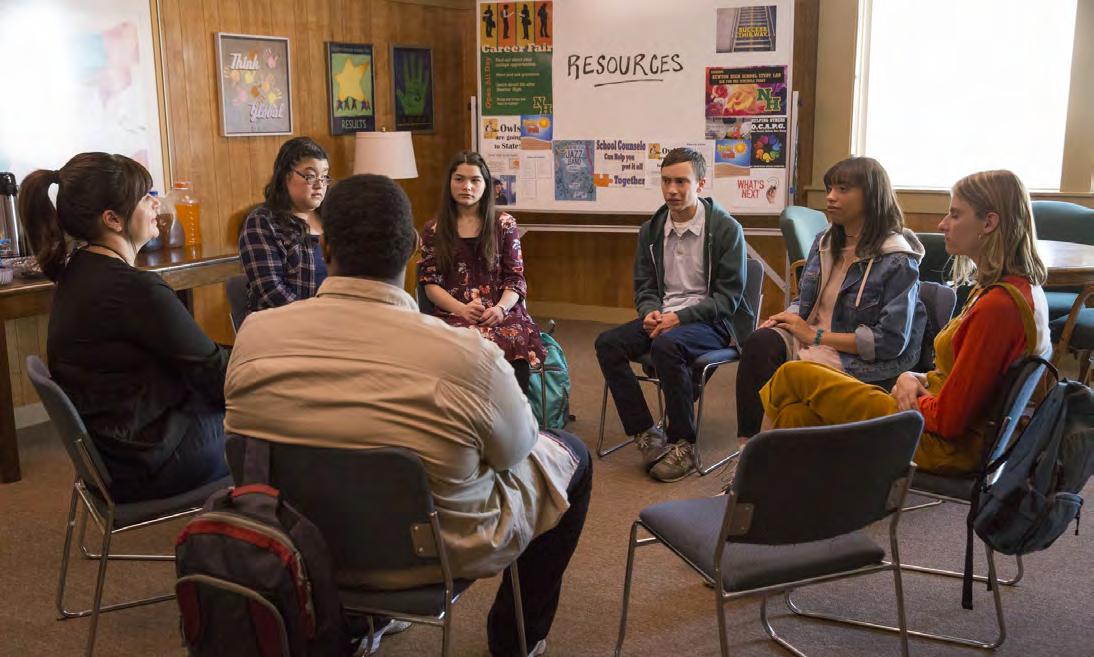
4 minute read
Non Human Characters Race

The semi-recent controversy around the removed “evil” Dungeons and Dragons races was something that I had never expected would happen. Unlike a lot of poc around me, I had never noticed how uncomfortable the portrayal of fantasy races such as Orcs, Dwarves, Goblins, Trolls and Tiefings was, not just in Dungeons and Dragons, but in most general fantasy as well. 2020 chinese game Genshin Impact, my inspiration for this article, revels in making you continuously massacre and destroy entire colonies of the “Hillichurl’’ people, who have been very pointedly depicted to, despite not being able to speak english (or whatever language your game is set to), house their own languages, poetry, and culture. If you’re a member of the societal majority, which considering the demographics of this school, you probably are, you probably didn’t know there was even anything wrong or of about these portrayals of non-human races in fantasy stories, or maybe you have heard the discourse and still think there’s nothing wrong. Well friends, I’m actually here to rationalize whether or not the change in D&D specifcally was worth it.
Advertisement

Starting of with the big guns, we have to talk about how dungeons and dragons used to describe Half-Orcs and Tieflings, both of which are on the racial alignment for genetically evil. For the purposes of keeping this article the correct length I’ll only pull out the “Racial Traits” section of the Half-Orc player race description:
The two sentence leave one hell of a bad taste in my mouth, the description immediately jumps into calling Half-Orcs impulsive and short-tempered, and heavily implies that that impulsiveness is linked to a lack of intellect. To make matters worse the next sentence downright states that only Half-Orcs with “self-control” are the only ones who are “successful” (I couldn’t actually tell you what that even means) and “not the crazy ones”. This could potentially be a fne assessment to make of a person, except for the fact that it’s listed under racial traits, which alone makes the whole thing stink of yucky eugenics. When I read these paragraphs the frst time I thought it’d be funny if I gave them to my Maori family members so I could hear their thoughts on the way these orcish people are described. The results were as expected, my sister replied with a simple “yikes” and my father replied with a long string of expletives about racist white people that’s better suited to an article not written for a school project. He did, however, give me a long lecture about colonialism that I’d like to use whilst looking at the second and last paragraph of the description:

Half-Orc
“Half-orcs love simple pleasures such as feasting, drinking, boasting, singing, wrestling, drumming, and wild dancing. Refined enjoyments such as poetry, courtly dancing, and philosophy are lost on them. At the right sort of party, a half-orc is an asset. At the duchess’s grand ball, he’s a liability.”

This second quote really sells the (once again, intentional or not) racism embedded into the orcs, all of which is heavily infuenced by colonialism. As my father pointed out when I talked to him, a lot of these “simple pleasures” are very associated with tribal cultures. For example “singing, wrestling, drumming, and wild dancing”. Most tribal and indigenous cultures have heavy spiritual ties with dance and percussion, and they are often described from a euro-centric perspective as “wild” when in actuality they’re just dancing normally. My father called this entire description “colonialist propaganda”, and I’m inclined to agree at least a bit. He said the Orcish activities were all described in a derogatory way, and it makes him angry to see that people are so fne with descriptions such as this. The reason he thought the descriptions were derogatory was because of the wording used, whilst not directly dogging on Orcs for their different cultures immediately, going on to afterwards describe western-centric activities as “Refned enjoyments” or saying that the only success a Half-Orc fnds is in integrating with “civil” society even though there’s nothing at all inherently wrong about living in camps in the forest like Orcs do. If there’s nothing else to take away from this small article, it’s this: If a tiny snippet from but two paragraphs in a series that has tons of content attached to it can be this thoroughly infuenced by racist colonialist ideals, once again whether intentionally or not, it’s a distasteful thing to see for someone who can pick it up. After all I’ve said today I think it would be easy for me to say that I’m happy for the changes made by the D&D team, because no matter the intent, the efect that these old descriptions subconsciously have is not lost. In spite of what I’ve just said, feel free to draw your own conclusions, god knows I’m not one to tell you what your opinions should be. 60











